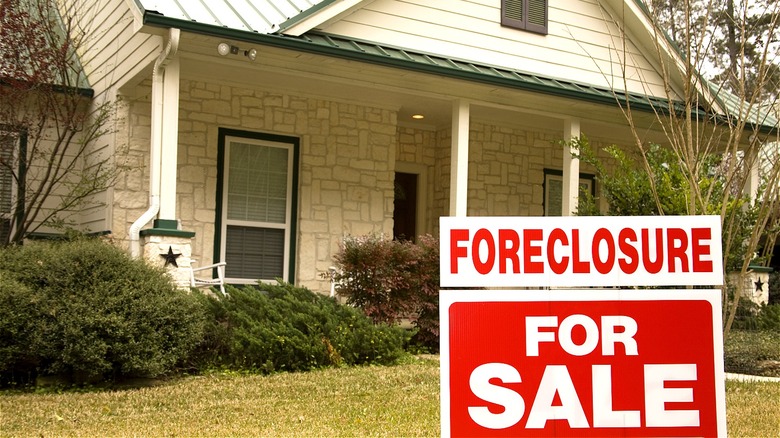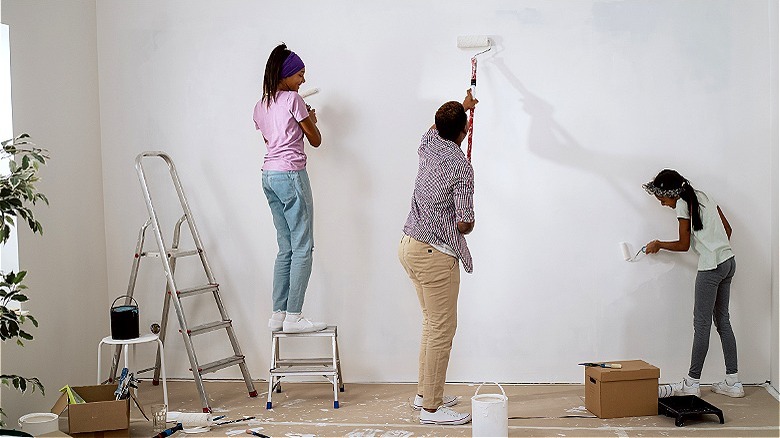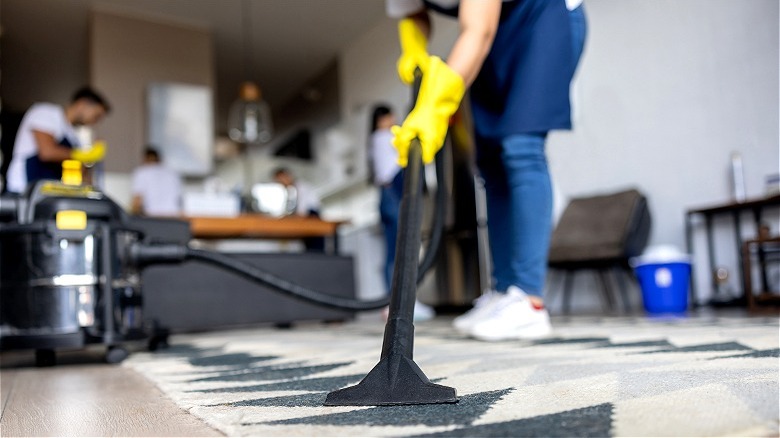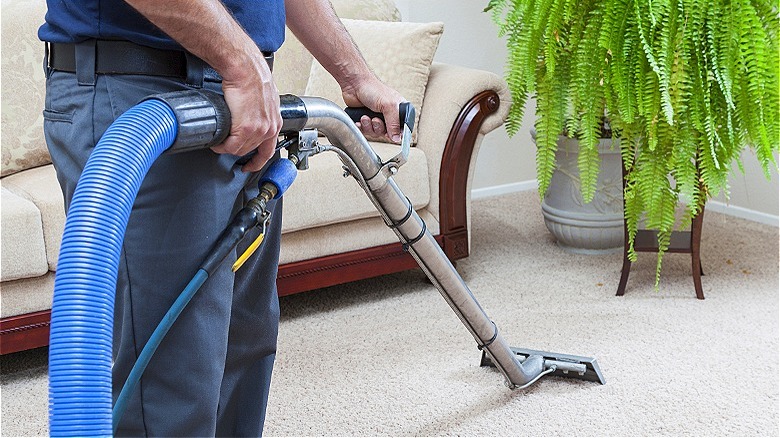Who Cleans Out Foreclosed Homes?
After consideration, you've just bought a home that was in foreclosure! Congrats, but also, good luck. Foreclosure is the process banks and other lenders use to sell a home that's been repossessed. Homeowners who can't make their monthly mortgage payments for an extended period of time can face this consequence, and, ultimately, it results in a quick sale by the lender in order to recover at least some of the costs incurred. Foreclosures are quick-and-dirty sales, in a sense, by necessity.
When a homeowner decides to move on from a home they've lived in, they'll often look to get the most value for their property. This means many home sellers will be seeking cost-effective ways to improve the property's aesthetic and, hopefully, its resale value. Home trends with little financial upside are tossed by the wayside, and others that can help improve the home's sale price may be incorporated into the floor plan.
As a baseline, however, homeowners will clean up the property, potentially stage the home, and upon the close of a sale, move all of their things out as they leave. A foreclosure is a sale that seeks to limit additional expenditure, though, so anything left behind by the previous owner will stay in place, awaiting action from its new buyer. You might consider tackling these cleaning and repair issues on your own, but there are also resources that can help in a pinch.
The DIY route
When it comes to cleaning out a foreclosed home, the option that might most commonly come to mind is perhaps the simplest answer: You, the buyer, might clean out the foreclosed home yourself. The previous owner certainly won't have any interest or incentive to clean up the property before being forcibly removed from their home, and banks may or may not be inclined to pay more for professional cleaning services and add to the running total of losses on the property.
While some financial institutions may tackle this work (leaving a foreclosed home in rough shape but relatively clean when the deed is ultimately transferred), this isn't always going to be the case. Buyers who are eyeing up homes in foreclosure should be prepared to tackle the clean up and repair works themselves, or include money in the budget to hire a pro to handle these tasks. Opting for a DIY cleanup can save a considerable amount of money, though, when it comes to the sum total of tasks involved in this process.
This said, it can be a daunting challenge. Homes in foreclosure aren't just dirty or filled with junk, they often come along with a random assortment of problems that demand addressing. As a newly minted owner of a foreclosed home, you may have to become a drywall repair expert, makeshift electrician, or even a weekend tiler. For those who are handy or experienced, clean up and repair operations can be done without help, but they can be time consuming and difficult.
Hiring professionals
If not DIY, then a professional foreclosure clean-out service is another option for cleaning out a foreclosed home. Banks and individual buyers lean on these services on a regular basis to prepare foreclosure homes for their next life. Financial institutions that have repossessed homes typically work with local foreclosure clean-out companies to prepare properties for resale. As is the case with regular home listings, a property in decent shape will almost always sell for a higher price than one that's been put through the ringer. If a home doesn't require a massive financial investment to get it cleaned and ready for the market, banks will often engage in the work before listing.
New owners can also look to professional service providers in their area. As mentioned previously, many homes selling in foreclosure have a lot more maintenance required in them than just a standard scrubbing. Foreclosure clean-out professionals specialize in many of the typical repair tasks that these kinds of homes pose to their new owners. Fixing holes in the wall, shoring up leaky pipes, sealing windows to prevent air leaks, and perhaps even decorative tasks like spot painting and nail-hole removal may be standard territory for a professional in this field.
If you're new to the foreclosure marketplace, hiring a professional might be your best option. Many buyers of foreclosure properties will be looking to rent out the homes or flip them for a profit. DIY workmanship simply won't cut it in all cases. Calling in professional help can prove a cost-effective solution that really adds value.
A potential side hustle?
Pros in the foreclosure space, meanwhile, might even consider building a business for themselves around the cleanup tasks involved in these transactions. A typical foreclosure clean-out contract is worth between $500 and $2,500 for the average home (and more when adding in repair services). Therefore, anyone with a bit of DIY experience, and perhaps even a foreclosure flip or two under their belt, might consider incorporating a business to perform these services for others.
Working with new buyers is a great way to get your feet wet, and taking on a foreclosed home (or two) during the weekend might provide a steady stream of secondary income — a goal that wealthy Americans prioritize in their financial big picture. Investing in real estate offers a fantastic return, but direct ownership isn't always necessary when looking to cash in on the asset class. Working within the industry provides a viable alternative to reaping adjacent rewards.
Approaching banks and other institutional lenders in your area about the foreclosed homes in their portfolio can give you an in when it comes to taking on an increased workload. If you've had success working with individual investors, this is the next step to growing your business into something even more lucrative. If you do quality clean-out work, the banks you work with may come to rely on you as a routine contractor for many, or even the majority, of the homes they repossess and sell through the foreclosure process.



